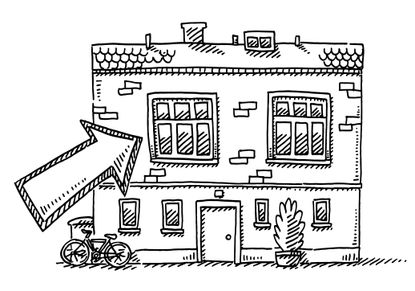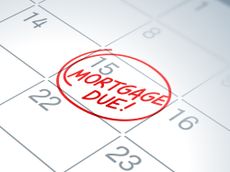Is now a good time to invest in buy to let?
A quick look at house price growth and rental yields makes property investment a tempting proposition


The latest figures from Halifax show house prices are up by 9.5% in the last 12 months, while the Paragon Banking group claims rental yields hit a three-year high in the first quarter of 2021, reaching 6%.
Aaron Strutt, product and communications director at Trinity Financial says: “We have been speaking to more buyers keen to purchase investment properties. There are many reasons why property investors think it’s a good time to expand their portfolio or get their first buy to let.”
“The rates are not that much more expensive than the cheapest residential mortgages and with such a shortage of homes in the UK, there is always going to be demand from tenants.”
However while the housing market is performing well, new investors in buy to let need to look beyond these numbers.
David Hollingworth, associate director communications at London & Country Mortgages says: “The buy-to-let market has been through some significant changes in recent years, many of which could have put potential landlords off investing in property.”
These include a 3% stamp duty surcharge and the replacement of tax relief on mortgage interest payments with a 20% tax credit, increasing bills for higher and additional rate taxpayers.
(MORE: How to buy insurance for a buy to let)
Look After My Bills Newsletter
Get the best money-saving tips, tricks and deals sent straight to your inbox every week. Make sense of your money in partnership with The Money Edit.
Pros and cons of property investment
Managing and maintaining a property can be hard work, even if you employ a lettings agent. Then there’s another mortgage to deal with and a fiscal minefield to navigate.
Using a stocks and shares ISA to invest in commercial property funds – either those that buy properties directly or funds that invest in property companies – can be an alternative.
However, while these are straightforward and easier to access with minimum monthly investments of £50 or so a month, they often don’t have the same appeal for potential landlords wanting a hands on ‘bricks and mortar’ investment in residential property.
Many landlords prefer the direct control they have over their investments and anticipate greater returns as a result.
(MORE: Common landlord mistakes to avoid)
Buy-to-let mortgages
Although many new landlords would love to avoid borrowing costs by purchasing a property with cash, most require a buy-to-let mortgage.
Rates are competitive but borrowers will need a decent deposit, with the best rates and widest choice of lenders available to landlords that can put down 25%.
Lenders are also being increasingly accommodating. Hollingworth says: “The mortgage market has become more flexible in its approach to criteria as well, with a more varied range of rental requirements applied depending on the individual circumstances. For example lower stress rates can apply on longer-term fixed rates. Lenders may also have lower rental requirements for those that are basic rate tax payers.”
Can I save money by setting up a limited company?
It may be possible to reduce your tax bill by using a limited company to purchase property and specialist mortgages are available for landlords that choose to invest in this way.
Hollingworth says this route often appeals because costs can still be set against income with corporation tax, which is paid at a lower rate than income tax. “However it’s important to understand this clearly and to seek specialist tax advice to make sure it’s appropriate. There could be personal tax implications when the income is taken out of the company, mortgage rates are higher than standard BTL and there will be costs to set up and maintain the company.”
Are there other ways to reduce costs?
You can save money by finding tenants, collecting rent and managing your property yourself. Letting agents are likely to charge equivalent of a month’s rent for finding tenants (a let-only service) while full management can eat up between 12 and 20% of your rental income each month.
However, this can be a time-consuming option and, if you’ve not had experience of managing a rental property before, it could prove a false economy.
Should I take the plunge?
The ever-changing landscape of buy to let means it’s not a decision to be taken lightly.
As Strutt says: “If you are thinking about getting a buy-to-let, you need to speak to an accountant to make sure it makes sense. The tax rules have changed significantly and many landlords have sold their properties because they did not think it made sense to keep going.”
Rachel Lacey is a freelance journalist with more than 20 years' experience writing about all areas of personal finance and retirement planning.
After 17 years at Moneywise magazine as both writer and editor, Rachel now writes for a variety of websites and newspapers as well as corporate clients - these include Times Money Mentor, The Mail on Sunday, NerdWallet UK, Money.co.uk, The Money Edit, and Ideal Home.
She is passionate about financial education and simplifying money matters for all.
-
 Three energy firms pay £8m in switching compensation - has your provider paid out?
Three energy firms pay £8m in switching compensation - has your provider paid out?More than 100,000 customers have received compensation after changing providers, but is now a good time to switch energy suppliers?
By Tom Higgins Published
-
 Save £300 on your supermarket shop with cashback accounts
Save £300 on your supermarket shop with cashback accountsBanks, credit card companies and cashback sites are all offering cashback on your supermarket shop, but can you use them all to max out your savings?
By Vaishali Varu Published
-
 Moving home: why failing to share your new address could cost you money
Moving home: why failing to share your new address could cost you moneyWhen you move home you’ll want to share your new address with family and friends – but being slow to update your contact details with councils, banks and the DVLA can be costly
By Sue Hayward Published
-
 Skipton Building Society to offer deposit-free mortgages for “trapped renters” - everything you need to know about 100% deals
Skipton Building Society to offer deposit-free mortgages for “trapped renters” - everything you need to know about 100% dealsEverything you need to know about how to get a mortgage with no deposit
By Katie Binns Published
-
 Stamp duty: are you entitled to a tax refund worth thousands?
Stamp duty: are you entitled to a tax refund worth thousands?There are plenty of reasons why homebuyers may be entitled to a stamp duty refund, but it’s important to only claim if you’re eligible for a refund (and beware the claims management companies)
By John Fitzsimons Published
-
 House price hotspots: 50 areas where property prices have shot up the most
House price hotspots: 50 areas where property prices have shot up the mostWhich areas have seen the strongest house price growth over the past decade? Discover the towns and locations around the UK where property prices have more than doubled.
By John Fitzsimons Published
-
 Faster mortgage support for Universal Credit claimants – what it means for you
Faster mortgage support for Universal Credit claimants – what it means for youIf you claim Universal Credit, you can now get quicker support with paying your mortgage. We look at when you can get it and how to access it
By Stephanie Baxter Published
-
 Should I fix my mortgage rate?
Should I fix my mortgage rate?Interest rates are expected to rise again on the back of stubborn inflation, before falling next year. We look at the pros and cons of fixing your mortgage rate and what to consider if you need to remortgage soon.
By Stephanie Baxter Last updated
-
 Selling your home: avoid these mistakes to get the best possible price
Selling your home: avoid these mistakes to get the best possible priceFrom boosting kerb appeal to clearing clutter, there are crucial steps to take to ensure you get the highest price when selling your home
By John Fitzsimons Last updated
-
 Interest rates rise to 4.25% - what does it mean for your money?
Interest rates rise to 4.25% - what does it mean for your money?The Bank of England has increased the base rate for the 11th time in a row. We look at whether rates could rise further this year, and what the latest hike means for your mortgage and savings
By Ruth Emery Published